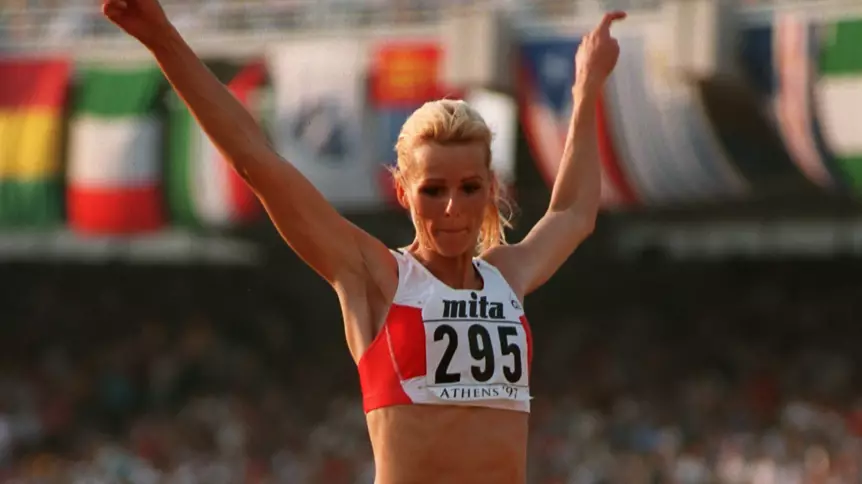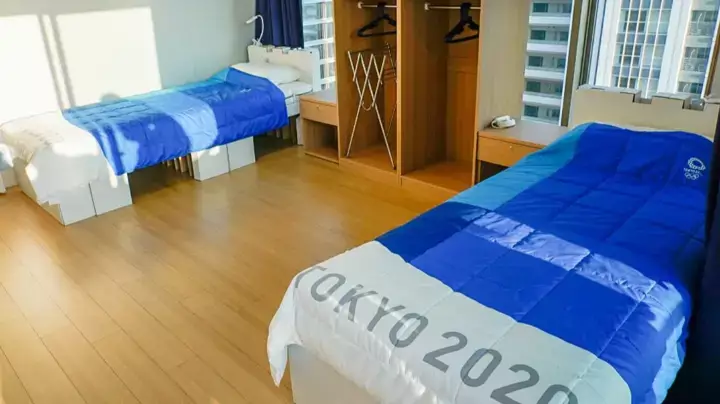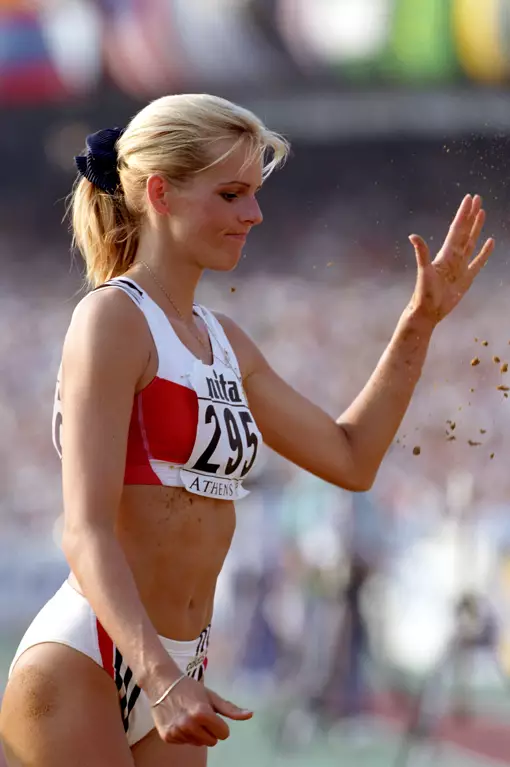
A former Olympic athlete has described what the sex etiquette is like within the Olympic Village, saying many athletes simply 'want to release their energy'.
You may recall that administrators at Tokyo this year have installed cardboard beds - initially believed to be 'anti-sex beds' - as part of measures to help curb the spread of coronavirus.

The speculation began when US runner Paul Chelimo tweeted: "Beds to be installed in Tokyo Olympic Village will be made of cardboard, this is aimed at avoiding intimacy among athletes.
Advert
"Beds will be able to withstand the weight of a single person to avoid situations beyond sports."
Former German long jumper Susen Tiedtke said such measures were laughable, saying sex is 'always an issue' in the Olympic Village.
Speaking to German newspaper Bild about her time at the Barcelona Olympics back in 1992, Tiedtke said: "[The sex ban] is a big laughing stock for me, it doesn't work at all."
Explaining that 'sex is always an issue in the village', she continued: "The athletes are at their physical peak at the Olympics. When the competition is over, they want to release their energy."
Advert
That year, Tiedtke actually ended up meeting her first husband - American two-time bronze medallist long jumper Joe Greene - to whom she was married for five years.

There have since been claims that the beds this year are actually made out of cardboard for environmental reasons, rather than to prevent any lovemaking.
Irish gymnast Rhys McClenaghan has set the record straight, calling out the 'fake news' and demonstrating the durability of his bed by jumping on it.
Advert
In a video shared on Twitter, the 21-year-old said: "In today's episode of fake news at the Olympic Games, the beds are meant to be 'anti-sex'.
"They're made out of cardboard, yes. But apparently they're meant to break at any sudden movements.
"It's fake - fake news."
The Olympics' official Twitter account subsequently thanked McClenaghan for his handy demonstration.
Advert
The tweet read: "Thanks for debunking the myth. You heard it first from @TeamIreland gymnast @McClenaghanRhys - the sustainable cardboard beds are sturdy! #Tokyo2020."
Takashi Kitajima, the general manager of the athletes' village, has said that the beds can hold up to 440 pounds (199.6kg), claiming the plan is for them to be recycled into paper after the games.
The mattress components will also be recycled into plastic products.
Advert
The beds are just one of many measures being taken by the International Olympic Committee (IOC).
In a statement, the committee said: "The Tokyo Games will go beyond their initial commitment of carbon neutrality, and will remove more carbon from the atmosphere than they emit. Carbon compensation equal to 4.38 million t-CO2 is currently planned.
"A final calculation on emissions will be made when the Games have finished, and this will be included in the Tokyo 2020 post-Games Sustainability Report.
"The update outlines initiatives to minimise the Games' environmental footprint and to demonstrate the shift towards a circular economy and a hydrogen-based society.
"Venues make widespread use of renewable energy, including hydrogen. Where it has not been possible to procure renewable energy, Tokyo 2020 is using green power certificates to compensate for the use of non-renewable electricity."
Featured Image Credit: PA
Topics: SPORT, olympics, News, Tokyo Olympics